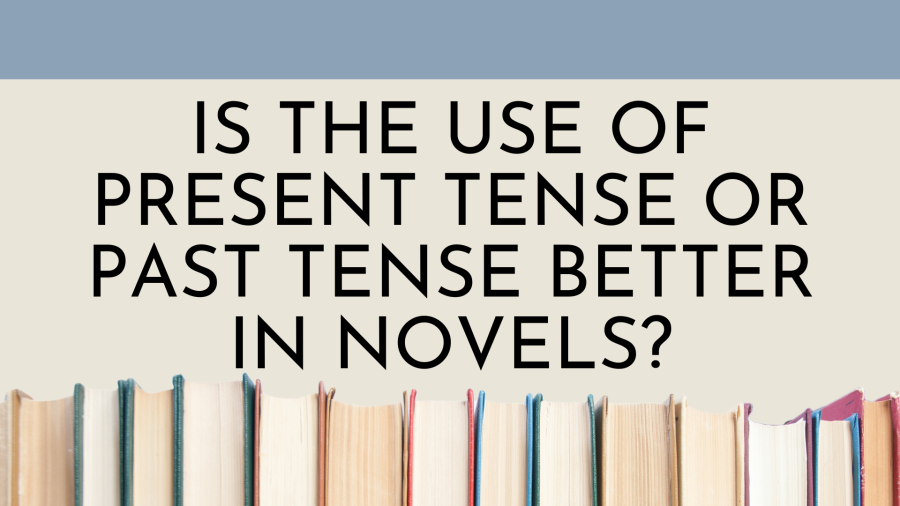
Head 2 Head
Novels and books can be written in many different tenses. Over 90% of books are written in past tense, leaving a small percentage for other tenses.
The second most common tense seen in novels is the present tense. Although it is not the most common, we should not ignore the significance of a book being written in the present tense.
Personally, I enjoy and prefer novels written in the present tense. Maybe writing in the past tense is easier to understand, but the present tense allows for a more involved reading adventure.
While reading, it immediately increases your attentiveness. Present tense gives you the ability to dive into the novel. It makes you feel like you are right alongside the character and its journey.
With that comes a close connection to the characters. From emotions of happiness to sorrow, you feel with and for the character. In the present tense, you are discovering everything at the same time the character is, so you inevitably develop a deeper connection. Which is something you just cannot accomplish when reading in past tense.
In my experiences, reading a novel in the present tense is always surprising. In the present tense, there is less room for foreshadowing or an omniscient narrator. There is no clue to what will happen next. Reading that type of book never fails to keep you on the edge of your seat.
You know you found a good book when you cannot put it down because you are so immersed in the story. That is the effect of the present tense.
Even though writing in the present tense is uncommon, there have been tons of successful books that have benefited from using the present tense. Some of the most successful book series, such as “The Hunger Games” or “Divergent,” are written in present tense.
Plus, it is something different. Most published novels are written in the past tense, sometimes readers need a change. And this is the better change.
Reading a present tense novel is the better decision. If you want a more exhilarating, interesting, and overall better experience go read a book in the present tense.
Whether it be points-of view or genres, the thousands of books flooding the market present a variety of differing experiences which exist to appease the preferences of readers and writers alike. With this, one tense has dominated the market: past.
Past tense allows for time-flexibility throughout fictional stories while creating an understandable piece of literature.
In a fictional story, it is often common for the author to reference brief flashbacks or flashforwards, talking about experiences before or even after the current story. While it is possible in present tense to reference the past, it is almost impossible for the story to speak on anything which is to happen in the future or even to foreshadow a likely event.
Past tense is a natural way to tell a story, as it feels to the reader as if someone is relaying an event back to them, and they are getting a glimpse into it.
The understandable nature alone makes past-tense stories stand apart from other tenses. When reading a story, it is one thing for it to have a strong meaning or heavy vocabulary which forces the reader to scan sentences multiple times, but when it comes to a tense which exists throughout the entire book, it can hinder the reader’s ability to understand a story if it is written in present tense.
Past tense accounts for 80- to 90% of books on the market, meaning past tense comes more natural to readers and writers alike. It is not often in people’s daily lives where they are told any story in present tense. This is because people do not often narrate what is going on in front of them in the moment, with the exception of sports announcers who use both present and past tense to communicate.
When it comes to a fictional story, the goal exists that it will be both enjoyable to the reader and teach them a certain moral or lesson. If their comprehension is hindered by something which is an easy change, it can turn a strong story into a difficult read which requires much effort to even make it to the back of the book.
Often the most common literary rules are common for a reason, and past tense is no exception as referenced by the many successful examples it brings to the table. Past tense allows for everything present tense does and some more.
As far as examples, there are countless literary masterpieces written in past tense.
Readers can become just as engulfed in the characters and setting, as seen in the “Harry Potter” series which has fascinated millions of readers with its fictional fantasy world. Even horror writer Stephen King prefers and writes most of his suspense-filled novels in past tense.
What past tense allows for is a flexible writing and reading experience while being easy to comprehend for any reader. The tense immerses the reader into the story and fosters tension through foreshadowing.
No tense should have a negative impact on a reader, hindering their understanding of a book’s true message, and present tense tends to have that unfortunate effect. Overall, past tense tends to produce a more enjoyable reading experience which has been tried and true since the beginning of storytelling.


